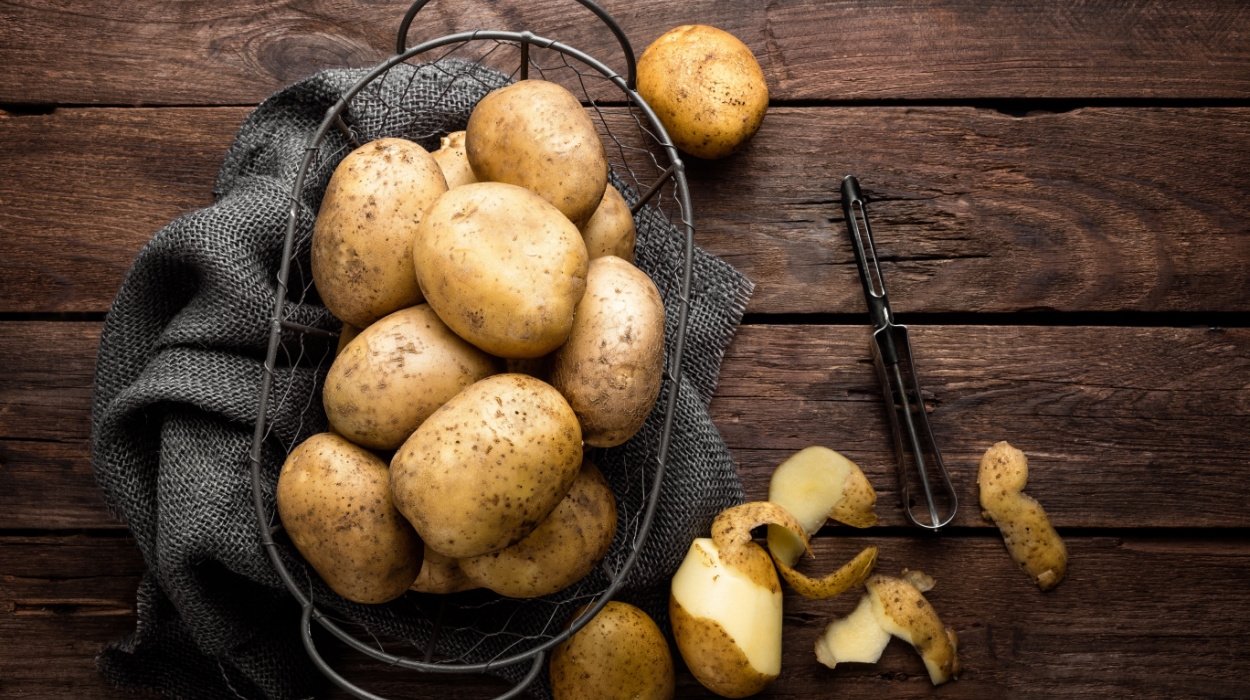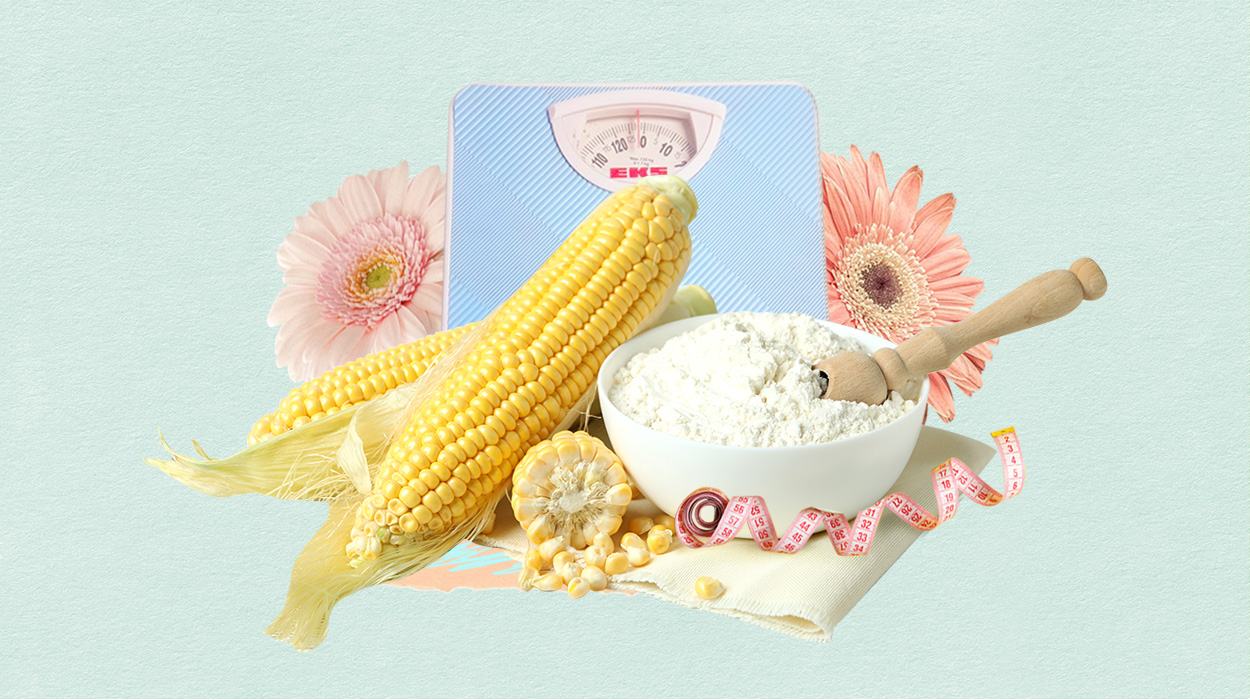Is Soup Good For Weight Loss: What To Know About The Soup Diet 2024

When people try to lose weight, they often make changes to their diet. For best results, dietary changes should result in a calorie deficit. This means a person is burning more calories than they’re eating each day.
If you’re exploring different diet options, you might ask, “Is soup good for weight loss?” Some soups can be low in calories and nutritious. In this case, they can be incorporated into a low-calorie diet for weight loss. Various broth-based soup options exist for weight management such as the keto soup diet, the sweet corn soup diet, and various cream-based soup diets.
In some cases, the ingredients in soup can help with fat loss. For instance, fiber is known[1] to be beneficial for weight loss. Some soups are high in fiber content, such as the bean soup diet or the chicken soup diet — making them beneficial for those trying to lose weight.
Learn more details about fiber and the other benefits of soup-based diets below. If you’re a soup fan, you’ll be pleased to learn that you can incorporate most soup diets into a weight-loss plan.
Is Eating Soup Good For Weight Loss?
Whether soup is good for weight loss depends on the type of soup consumed. Some soups are high in fat and calories, whereas others provide a filling, low-calorie meal. In the latter case, soup can be beneficial for weight loss. Fortunately, there are many low-calorie, nutritious soups available. Options like vegetable and minestrone soup are filling but low in calories and can be incorporated into a weight-loss diet.
Is Soup Good For Weight Loss?
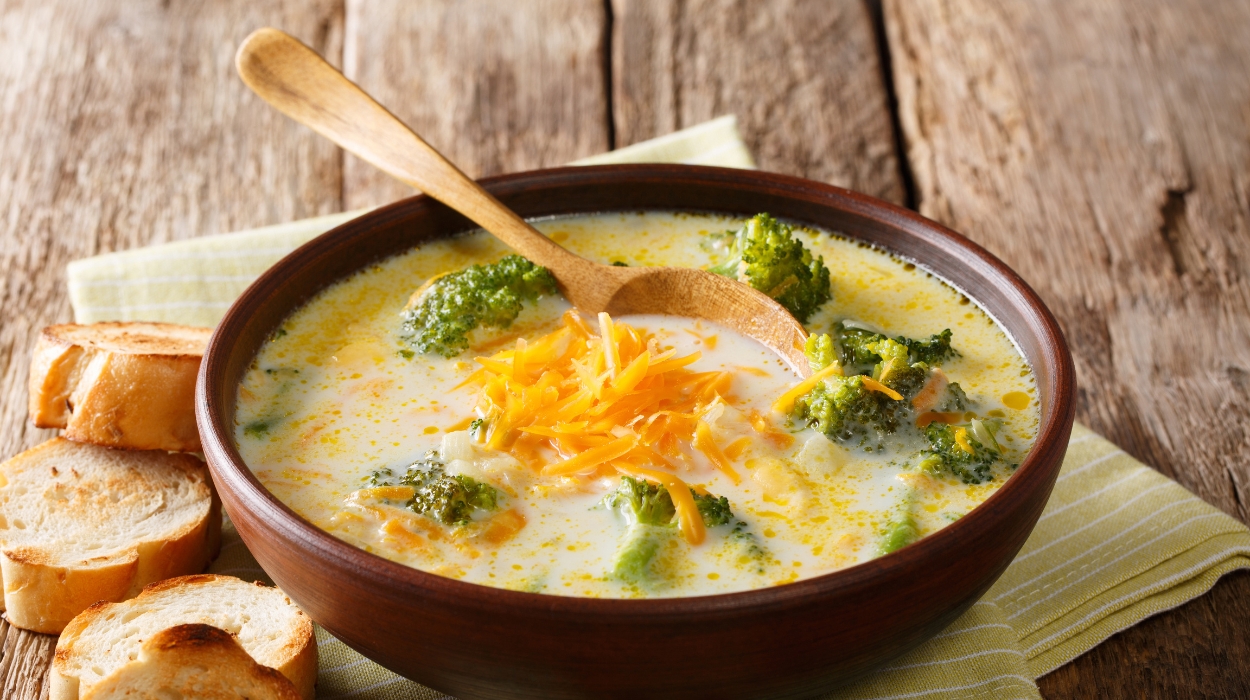
Whether soup is good for weight loss depends upon the type of soup consumed. Some soups may be higher in fat and calories than others.
For example, buttery soups or those containing ingredients like cheese are likely to be more calorie-dense. On the other hand, vegetable soups full of plant-based foods are filling but lower in calories.
If you choose lower-calorie soups containing filling ingredients, you’ll feel full without many calories. This will make it easier to remain in a calorie deficit for weight loss.
A calorie deficit means you’re consuming fewer calories than you’re burning. This is required for fat loss.
Part of understanding the answer to “Is eating soup good for weight loss?” is considering research. Some research shows that that soup could promote healthy weight loss.
Some studies[2] have found that eating low-calorie soup at the start of a meal can reduce overall food intake. This can make soup a beneficial part of a hypocaloric balanced diet.
Given the potential benefits of soup, some companies even make meal replacement products consisting of soup. Researchers have also evaluated the effectiveness of soup as a meal replacement product.
Research with meal replacement products, including soups, has found that they do lead to weight loss. Meal replacement diets may be even more beneficial than other diets. Studies[3] show that on average, people lose about 3 pounds more with meal replacements than other diets.
Overall, the answer to, “Is soup good for weight loss?” can be a resounding yes if you select the right soups. In fact, the soup diet has become quite popular for weight loss.
One popular soup diet that has received attention is the cabbage soup diet. While research on this specific diet is limited, cabbage does have some benefits. Research shows[4] that cabbage contains anti-inflammatory compounds that may help with fat metabolism. Keep in mind that it’s not possible to maintain a soup diet long-term. It may be best to incorporate cabbage soup as part of an overall healthy diet.
Featured Partner Offer

PhenQ
- Helps to burn fat
- Crushes food cravings
- Boosts energy and balances mood
- High-quality formula
Money Back Guarantee and Free US Shipping
What Soup Is Good For Weight Loss?

Not all soups are created equal. The Centers for Disease Control and Prevention,[5] recommends broth-based soups for weight loss. The Centers for Disease Control and Prevention further recommends that people choose soups with low energy density emphasizing soups with sun-dried tomatoes and non-starchy vegetables.
Foods with low energy density have a low number of calories per gram and can help you lose weight. This means that even a large amount of these foods provides a relatively low number of calories.
Foods low in energy density, including certain soups, increase feelings of satiety despite their relatively low-calorie content. Satiety refers to the degree to which a food makes a person feel full.
Some broth-based soups that contain a low energy density include:
- Vegetable soups.
- Chicken noodle soup.
- Spinach soup.
- Tomato soup.
- Italian wedding soup.
- Minestrone soup.
- Lentil soup.
- Cabbage soup.
- Soups with non-starchy vegetables.
A soup diet consisting of these options could help you meet your weight loss goals.
The Benefits Of Vegetable Soups
There are many different kinds of soup. Choosing soups that contain vegetables like carrots, broccoli, onion, spinach, and corn, will be more helpful for weight loss.
Soups containing vegetables are likely to be particularly effective for dropping weight. A study[6] that evaluated the effects of vegetable intake found that people who consumed more vegetables experienced greater weight loss.
Soups for weight loss are often packed with veggies. Vegetable-based soups not only provide a low-calorie meal; they’re also nutritious because of their vitamin and mineral content. A soup diet rich in veggies will keep you full and satisfied.
The Benefits Of High-Fiber Soups
Another positive feature of many soups is their high fiber content. Since soups tend to be rich in vegetables and beans, they are an excellent source of fiber.
Fiber itself can play an important role in weight loss, especially if you want to know how to eat to lose belly fat. A study[7] found that participants who consumed fiber-containing barley twice daily lost both weight and body fat.
Study authors explained that fiber helps with weight loss because it slows digestion. This leaves you feeling fuller, so you’re less likely to overeat and more likely to stick to your diet.
Many vegetable soups are naturally high in fiber. If you’re wondering how much fiber is needed per day to lose weight, experts recommend[8] at least 25 grams daily.
The Benefits Of High-Protein Soups
Some soups, like lentil soup, are high in protein. This can also have benefits for weight loss.
If you want to figure out how to lose weight fast, naturally, and permanently, increased protein intake could be the answer. Protein helps you to feel satiated, so you are less likely to overeat. This is why clinical studies[9] have found that protein can boost weight loss.
When looking for soups good for weight loss, consider those that provide a high dose of protein. Read nutrition facts if you’re unsure.
Soups To Avoid For Weight Loss
While many soups are low in calories, not all of them are beneficial for weight loss. For example, some soups like French onion soup, broccoli cheddar soup, and potato soup are higher in calories because of their high content of ingredients like rich cheeses and butter.
When considering whether soups are good for weight loss, be sure to check the nutrition content. If soups are high in fat or contain a high dose of sodium, they probably aren’t the best option. Watch out for cream-based soups which can be made nutrient-dense and low-calorie by using skim milk, leafy greens, and other nutritious vegetables.
Tips For Eating
Eating soup can be beneficial for weight loss, but it’s not the only step for success. You’ll need to make other changes to your diet and ensure that you’re keeping calorie intake in check.
If you’re looking for information related to fat loss, the following tips can also be beneficial.
Calculate A Calorie Deficit
The reason foods like soup are beneficial for weight loss is that they can help you maintain a calorie deficit. To lose weight, you’ll need to remain in a calorie deficit over time.
You can estimate your own calorie deficit by using a calories burned calculator to determine your total calorie burn per day. Then, reduce your calories to remain in a deficit.
Calorie calculators aren’t 100% accurate, but they do consider your height, weight, age, gender, and activity level. They will give you a general guideline for your daily calorie burn so you can estimate a deficit.
Once you determine your deficit, choose lower calorie foods that allow you to remain in that deficit. Weight loss soups can be low in calories, but you’ll need to include other low-calorie foods in your diet.
Eat More Fruits
Fruits contain high amounts of water, which can increase feelings of fullness, just like soups. If you’re looking for additional ways to stay in a calorie deficit for fat loss, consider eating more fruits.
Multiple studies[10] have found that higher fruit consumption is linked to lower overall calorie intake. This is the case for whole fruits, but not fruit juices, which are linked to weight gain.
When you’re trying to lose weight, fruits are an excellent choice because they will help you feel full with fewer calories. Fruits can be an excellent side dish when you’re eating soups for weight loss.
Increase Overall Protein Intake
Some soups contain a healthy dose of protein, but for successful weight loss, it’s helpful to increase your overall protein intake. Clinical studies[9] have shown that protein helps with weight loss by making people feel more full.
Protein from soups is likely not sufficient to ensure adequate daily protein intake. Supplement protein from soup with other sources, such as lean meats and low-fat dairy. Some people may wish to further supplement with protein shakes.
Research has shown that whey protein shakes can be particularly beneficial for weight loss. One study[11] found that men who consumed whey protein shakes after lifting weights consumed less at their next meal. This may help with weight loss by promoting a calorie deficit.
Start The Day With Breakfast
When you’re trying to lose weight, you might be tempted to skip meals, but this can backfire. To ensure the best chances of success, you should start with a healthy breakfast to lose weight.
Studies[12] have found that most people who successfully lose weight and keep it off eat breakfast every day. Start your day with a healthy combo, such as eggs with a side of veggies, or whole grain toast with strawberries and yogurt.
If you start your day with a nutritious, filling breakfast, you’ll be satisfied. This can prevent you from becoming ravenous and overeating later in the day.
Featured Partner Offer
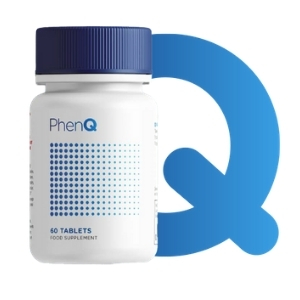
Consider Supplementing
There are some supplements on the market that may be beneficial for weight loss. For example, some of the best fat burners for men contain ingredients like caffeine and cayenne pepper, which can boost weight loss.
Supplements containing caffeine can be particularly effective, as numerous studies[13] have shown that caffeine can promote weight and fat loss. Furthermore, one study[14] found that when taken before exercise, a supplement containing cayenne pepper and Yohimbine enhanced fat burn.
Men aren’t the only people who can benefit from fat burners. The best fat burners for women might also contain caffeine, as well as other ingredients like cysteine. Cysteine has been found to reduce appetite,[15] so it could help with fat loss.
Fat burners aren’t a magic weight loss pill, but when taken alongside a low-calorie diet, they can be helpful.
There are numerous fat burner supplements on the market, so it’s important to research before trying a new one. Before taking a weight loss supplement, consult with your doctor to ensure that it is safe.
Conclusion
Is soup healthy for weight loss? In many cases, soup can help with weight loss because it is dense but low in calories. The water content in soup leaves you feeling full, but since many soups are rich in vegetables, they’re low-calorie.
Soups also tend to be high in fiber, which can keep you full for weight loss. Soups are so beneficial that some diet companies sell soups as meal replacement products. The soup diet has become quite popular, and there is evidence[3] to support that it works. While it can work over the short-term, it may not be sustainable.
Low-calorie soups, like vegetable soup, can be incorporated into a successful weight loss diet. Complement soups with other healthy choices, like fruits and lean proteins, for the best results.
If you’re aiming for fat loss, limit fatty, high-calorie soups like potato soup, which can be buttery and rich. These soups may be too high in calories, making it difficult to stay in a calorie deficit.
Frequently Asked Questions
Soup can be an excellent food to incorporate into your diet for fat loss. Soups are often low in calories, yet filling, so they can help you stay in a calorie deficit.
Soups that are high in fiber can be beneficial if you’re looking for solutions for how to lose belly fat. Fiber has been shown to be helpful for losing abdominal fat.
There is not one single soup that is the healthiest choice. High fiber, low calorie soups are healthy options. Such soups include spinach soup, vegetable soup, and minestrone soup.
Resources
- Kahleová, H., Dort, S., Holubkov, R. and Barnard, N.D. (2018). A Plant-Based High-Carbohydrate, Low-Fat Diet in Overweight Individuals in a 16-Week Randomized Clinical Trial: The Role of Carbohydrates. Nutrients, [online] 10(9), pp.1302–1302. doi:https://doi.org/10.3390/nu10091302.
- Rolls, B.J. (2017). Dietary energy density: Applying behavioural science to weight management. Nutrition bulletin, [online] 42(3), pp.246–253. doi:https://doi.org/10.1111/nbu.12280.
- Astbury, N.M., Piernas, C., Hartmann‐Boyce, J., Lapworth, S., Aveyard, P. and Jebb, S.A. (2019). A systematic review and meta-analysis of the effectiveness of meal replacements for weight loss. Obesity Reviews, [online] 20(4), pp.569–587. doi:https://doi.org/10.1111/obr.12816.
- Daniela Abigail Navaro, Raz, O., Gabriel, S., Vered Kaufman‐Shriqui, Gonen, E. and Boaz, M. (2017). Functional Foods in fad diets: A review. Functional Foods in Health and Disease, [online] 7(9), pp.702–702. doi:https://doi.org/10.31989/ffhd.v7i9.346.
- Centers for Disease Control and Prevention (2008). Low-Energy-Dense Foods and Weight Management: Cutting Calories While Controlling Hunger. [online] Available at: https://www.cdc.gov/nccdphp/dnpa/nutrition/pdf/r2p_energy_density.pdf.
- Tapsell, L.C., Marijka Batterham, Thorne, R.L., O’Shea, J.E., Grafenauer, S. and Probst, Y. (2014). Weight loss effects from vegetable intake: a 12-month randomised controlled trial. European Journal of Clinical Nutrition, [online] 68(7), pp.778–785. doi:https://doi.org/10.1038/ejcn.2014.39.
- Seiichiro Aoe, Ichinose, Y., Kohyama, N., Kôzô Komae, Takahashi, A., Abe, D., Yoshioka, T. and Yanagisawa, T. (2017). Effects of high β-glucan barley on visceral fat obesity in Japanese individuals: A randomized, double-blind study. Nutrition, [online] 42, pp.1–6. doi:https://doi.org/10.1016/j.nut.2017.05.002.
- Corina-Bianca Ioniță-Mîndrican, Khaled Ziani, Mititelu, M., Oprea, E., Sorinel Marius Neacșu, Moroşan, E., Dumitrescu, D.-E., Adrian Cosmin Roșca, Doina Drăgănescu and Negrei, C. (2022). Therapeutic Benefits and Dietary Restrictions of Fiber Intake: A State of the Art Review. Nutrients, [online] 14(13), pp.2641–2641. doi:https://doi.org/10.3390/nu14132641.
- Moon, J. and Koh, G. (2020). Clinical Evidence and Mechanisms of High-Protein Diet-Induced Weight Loss. Journal of obesity & metabolic syndrome, [online] 29(3), pp.166–173. doi:https://doi.org/10.7570/jomes20028.
- Critical Reviews in Food Science and Nutrition. (2017). Fruit consumption and adiposity status in adults: A systematic review of current evidence. [online] Available at: https://www.tandfonline.com/doi/abs/10.1080/10408398.2015.1012290.
- Monteyne, A.J., Martin, A., Jackson, L., Corrigan, N., Stringer, E., Newey, J., Penny, Stevenson, E. and James, L.J. (2016). Whey protein consumption after resistance exercise reduces energy intake at a post-exercise meal. European Journal of Nutrition, [online] 57(2), pp.585–592. doi:https://doi.org/10.1007/s00394-016-1344-4.
- Wyatt, H.R., Grunwald, G.K., Mosca, C., Mary Lou Klem, Wing, R.R. and Hill, J.O. (2002). Long-Term Weight Loss and Breakfast in Subjects in the National Weight Control Registry. Obesity Research, [online] 10(2), pp.78–82. doi:https://doi.org/10.1038/oby.2002.13.
- The effects of caffeine intake on weight loss: a systematic review and dos-response meta-analysis of randomized controlled trials. (2019). Critical Reviews in Food Science and Nutrition. [online] doi:https://doi.org/10.1080//10408398.2018.1507996.
- Alkhatib, A., Seijo, M., Larumbe, E. and Naclerio, F. (2015). Acute effectiveness of a ‘fat-loss’ product on substrate utilization, perception of hunger, mood state and rate of perceived exertion at rest and during exercise. Journal of the International Society of Sports Nutrition, [online] 12(1). doi:https://doi.org/10.1186/s12970-015-0105-8.
- Amin, A., Agahi, A., Martin, N. and Murphy, K. (2014). The effect of L-cysteine on appetite in humans. [online] ResearchGate. Available at: https://www.researchgate.net/publication/269626434_The_effect_of_L-cysteine_on_appetite_in_humans.
More from Weight Management
-

How To Drink Apple Cider Vinegar For Weight Loss In 1 Week In 2024
January 10, 2024
Taking apple cider vinegar has become a sensation for its supposed health benefits, despite its sour taste. Apple cider vinegar may…Read more -
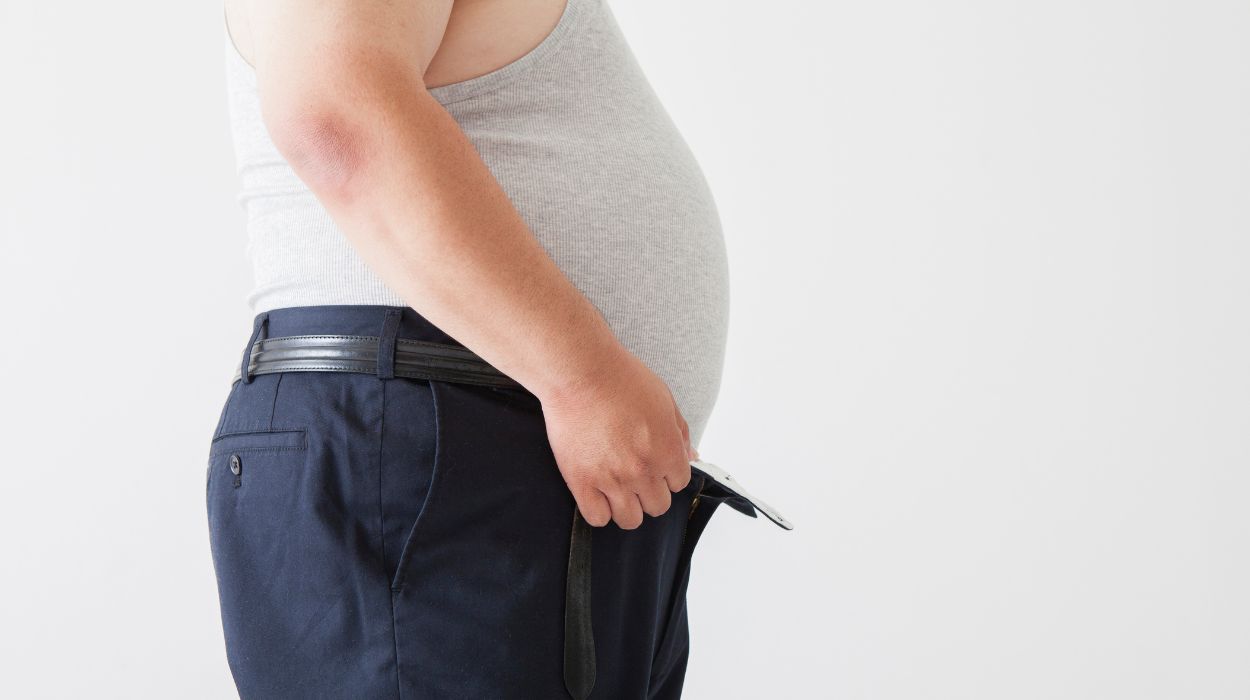
How To Lose Belly Fat After 50: Here’s 10 Tips For People Over 50 To Try In 2024
December 27, 2023
Losing weight over 50 can feel challenging, especially in stubborn areas like the abdomen. As we age, hormonal changes, slower metabolism,…Read more -

How To Lose Weight With Hypothyroidism – 10 Ways You Should Try In 2024
December 22, 2023
Hypothyroidism[1] is a condition that occurs when a person has low levels of thyroid hormone, and it most often develops when…Read more -

Hypnosis For Weight Loss: Unlocking Your Mind’s Potential For Success 2024
December 20, 2023
You’ve heard about various methods and tools to achieve weight loss and you might have looked into how to get ozempic.…Read more



